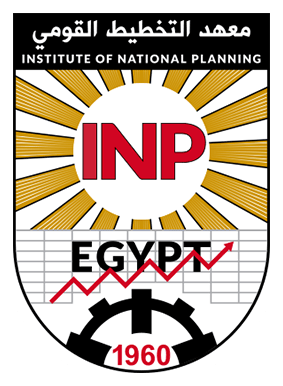Capacity building is the integral mission of the Institute of National Planning. Over the course of more than 60 years, the institute has developed numerous outstanding training programs, creating many skilled professionals who have effectively contributed to the knowledge-based economy in Egypt, the Arab world, and Africa.
The INP takes pride in its extensive experience and commitment to empowering individuals and organizations. The INP strives to be the primary destination for comprehensive training in the fields of planning and development.
Training Philosophy:
Knowledge, capacity building, and skill development are among the key drivers of growth and development. Thus, our programs at the Institute of National Planning are carefully designed to align with the best international practices in training. They aim to provide trainees with the necessary tools and insights to address contemporary challenges and seize opportunities across various fields.
Trainers and Expertise:
One factor contributing to our excellence is our exceptional team of trainers and experts, ensuring a comprehensive educational experience. Our trainers possess practical experience and rich and diverse academic knowledge of all academic degrees that qualifies them to integrate real-world applications into the training content.
Training Programs:
Through a wide range of training programs specifically designed to meet the needs of individuals at various stages of their professional lives and both government and private institutions, as well as civil society organizations, seeking to enhance the capabilities of their personnel in planning and development. The programs offered include courses, workshops, seminars, specialized diplomas, and executive certificates with flexible schedules, catering to the diverse needs of participants with the submission of accredited certificates indicating the passing of the offered programs.
Training Facilities:
To ensure an optimal learning environment, the INP maintains state-of-the-art facilities equipped with the latest technologies. Our training rooms are equipped with the latest audio-visual aids and interactive tools that enhance the learning experience, in addition to the latest digital equipment, enabling participants from around the world to learn and training remotely.
Commitment to Excellence:
Because the INP is committed to providing the highest level of service, we continuously monitor and evaluate its programs to ensure their suitability and effectiveness. The INP greatly values participant feedback, creating a supportive and enriching training learning environment for all.
The Institute of National Planning invites you to explore our various range of training programs, whether you are an individual looking to develop your skills or an organization seeking to enhance the capabilities of your personnel. The Institute of National Planning supports your vision. Join us...


















